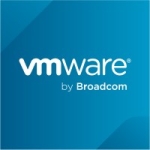What is our primary use case?
I am an end user of Amazon EKS. As a software engineer, we are using Amazon EKS as a platform for deploying our applications.
What is most valuable?
The most valuable features of Amazon EKS that I have found include scalability, simplicity in operations and management, and some great features for optimizing cost. Those are probably the main advantages.
Speaking about scalability, it basically means that we are able to scale our workloads according to our needs, which is useful. Regarding cost optimization, sometimes infrastructure in AWS might be a little bit expensive, so having some functionality to get it more manageable and to have some cost reduction solutions in place is always useful. Additionally, not only Amazon EKS but the Kubernetes platform itself is a very popular platform, and many developers are familiar with it, making it convenient for the company to use. It is much easier for our developers to get any information about solving problems and developing applications because information is widely available.
I have seen a positive impact from Amazon EKS for my organization since deployment; it provides a very robust and cost-effective platform for deploying our applications. The Kubernetes platform is well known and widely available, which means there is a lot of information about it. Since it is a manageable solution, it removes a lot of the burden and headache of managing our own cluster on bare-bone hardware. While we do not rely heavily on Amazon infrastructure, I understand that if someone were to rely on it heavily, it would be much easier to integrate with Amazon EKS.
What needs improvement?
In my opinion, Amazon EKS could improve its plugin management; while Amazon offers some improvements, they often come at an extra cost. Compared to Google, for example, having the same cluster in Google Cloud is much easier because it hides all the complexity of managing Kubernetes add-ons and plugins. EKS is improving in this area, but it could still be smoother and better. Upgrade management is also a constant concern because EKS frequently forces users to upgrade, which can be inconvenient due to the risks involved in introducing something new, especially at the platform level.
For how long have I used the solution?
I have been working with Amazon EKS for probably two or three years.
What was my experience with deployment of the solution?
It is hard to say how Amazon EKS's self-healing nodes help me minimize administrative burdens since we have not had any issues with them in a Kubernetes environment. The Kubernetes platform provides capabilities to replace nodes, and everything just goes smoothly under the hood.
What do I think about the stability of the solution?
We do not use Amazon EKS's automated patching feature for our Kubernetes clusters.
What do I think about the scalability of the solution?
Amazon EKS's support for AWS tools integration has not influenced my application development and management process much; we do not rely on any specific AWS features.
How are customer service and support?
I do not often communicate with Amazon EKS technical support and customer service.
I have reached out to Amazon EKS support a few times in my previous project where we had a subscription plan for support, but in the current project, we have no business support.
My impression of Amazon EKS support is generally positive; my experience depends on the person on the other side, but the vast majority of cases involved very professional and skilled engineers. However, there was one instance where I was not completely satisfied with the answers received. Overall, I would rate them eight out of ten.
How would you rate customer service and support?
Which solution did I use previously and why did I switch?
Before Amazon EKS, we used a different solution, specifically ECS and Elastic Container Service, and we still use it alongside offerings from other cloud vendors such as Google, as well as self-hosted clusters.
How was the initial setup?
I personally participated in the initial setup and deployment of Amazon EKS. The setup process for Amazon EKS is fully automated, as we use Terraform for bootstrapping and managing our infrastructure, so there are no issues at all. Everything was straightforward with no challenges. The only thing I can remember, which is relevant for the previous question, is that when creating a Kubernetes cluster in the AWS web console, it does some changes under the hood, such as creating a default role for authentication. However, doing it through command line tools or automation with Terraform requires some manual steps, which is not very convenient.
What about the implementation team?
I would like to optimize the Amazon EKS setup process in the future, but we probably will not take action because creating a new cluster is a rare task for us. Spending an extra 15 minutes on manual steps probably would not be worth the effort of full automation.
What was our ROI?
I do not have any metrics to measure the impact of Amazon EKS on my organization's ability to manage complex workflows efficiently.
What's my experience with pricing, setup cost, and licensing?
I am aware of the pricing of Amazon EKS. I do not consider Amazon EKS an affordable solution; it is not cheap for sure, but it depends. For a small project, such as a personal project or a proof of concept, the cost is fairly noticeable. However, for a full production setup, I think the cost is manageable.
Which other solutions did I evaluate?
The main advantage for us in choosing Amazon EKS is the AWS infrastructure and the cloud ecosystem, including databases and compute instances, which is probably even more important than Amazon EKS itself.
What other advice do I have?
I have not utilized Amazon EKS's integration with IAM.
I do not really integrate Amazon EKS with other AWS services; our current application would work with any Kubernetes platform, whether it is Amazon EKS, Google Cloud, or any other self-hosted Kubernetes cluster, most likely with some minor tweaks.
We do not use any specific Amazon EKS APIs or functionality, so I do not have anything to share about integration capabilities.
My personal rating for Amazon EKS is six out of ten, as it really depends on personal preference.
Which deployment model are you using for this solution?
Public Cloud
If public cloud, private cloud, or hybrid cloud, which cloud provider do you use?
Amazon Web Services (AWS)
Disclosure: My company does not have a business relationship with this vendor other than being a customer.






















